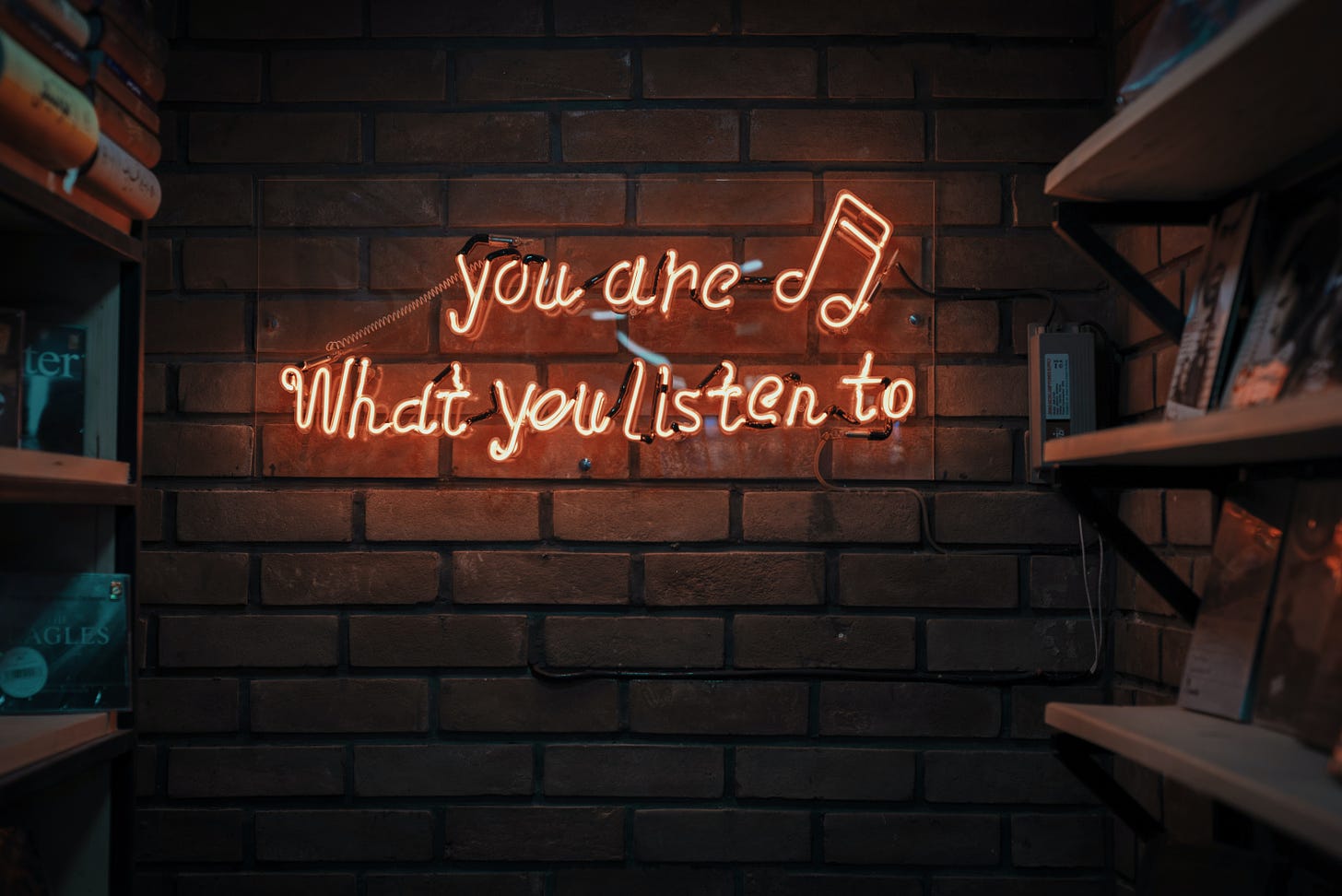The monotony of morning talk radio
What happens when we stop settling for entertainment and seek education?

In 10th grade, I carpooled to school with my friend Alex.
His mother drove, and I remember her religiously tuning into two radio stations: classical and NPR. Both put me to sleep. My 15-year-old mind couldn’t comprehend why anyone would willingly consume either, especially at the crack of dawn.
Occasionally there was a third option, days when Alex’s mom did something I found stranger. She chose silence. Every couple of mornings, without reason and without fielding requests, she shut off the radio. We rode the whole way without sound emitting from the speakers. That was unthinkable in my adolescence, running counter to the joy of having a car.
Fast forward to 2023, the final day of February. All these years later, my thoughts drifted to Alex’s mom. It was 7:15 a.m. And I made the mistake of turning on morning talk radio.
My misery started with “The Steve Harvey Morning Show.” During one segment, one of the show’s co-host’s relayed the story of 66-year-old Taylor, a man stuck in the 1970s. His newlywed wife sought advice to pull him into the present but felt guilty for waiting until they were married to try to change him. Taylor, according to the wife, couldn’t stop wearing bell-bottoms and butterfly suits.
One host had a field day with the topic, joking that Taylor proudly preserved furniture purchased from Montgomery Ward, the now defunct department store. The same co-host later spent nearly a minute sarcastically pretending to be Taylor, mimicking an exaggerated conversation with his wife about “her duties,” while speaking with the dialect and inflection one might associate with a pimp.
Flipping channels to 107.5 WGCI-FM didn’t help. I walked right into host Kendra G’s daily “love them or leave them” segment. The discussion: cheating.
I couldn’t take it anymore. I shut off the radio. I chose silence.
I’ve lost my stomach for mindless content. My transformation started in 2021. That’s when I canceled my Sirius XM radio subscription. I was happily paying upwards of $100 annually for the service to enjoy commercial-free music, news, comedy and sports programming. Hearing the same songs on the radio, between marathon commercial breaks, had long grown old. I refused to return there.
Switching to streaming services worked for a while. But they too became inundated with commercials. It also dawned on me that the streaming platforms were playing many of the same songs as the radio stations, virtually on the same loop.
I stuck with Sirius XM as long as I did because of the NBA Radio channel. It kept me up to date on the league’s biggest stories, and for a time it kept me entertained. But after five years of listening to the same personalities banter about the same topics, basketball discussions became as trite as the same songs I’d heard since childhood. I no longer needed Sirius XM.
Before I knew it, I was chauffeuring Parker to school on Friday mornings in silence. I had become the dad version of Alex’s mom.
Little did I know at the time, though, that kickstarted my love for financial literacy. Only after reaching a point of exhaustion with the content circulating in mainstream media did I unlock a whole new world of life-changing information.
I began devouring audiobooks and podcasts on personal finance. I turned off ESPN and turned on Bloomberg. I gave up Netflix and started binge-watching The Wall Street Trapper. NPR suddenly held my attention.
Parker even joined the fun. During our commutes to and from school — when we weren’t listening to the Money Talks podcast — we started listening to Million Bazillion, a podcast about money for kids and their families. Last Friday morning, we learned about what’s called the “pink tax,” the phrase used when clothing costs more for girls and women than boys and men.
Last week, I finally downloaded and dived into the audio version of the book “Think and Grow Rich.” I didn’t make it out of the opening credits before becoming captivated.
“You are about to come into possession of a philosophy which can be transmuted into material wealth,” the book reads, “or serve as readily to bring you peace of mind, understanding, spiritual harmony, and in some instances, as in the case of the author’s son, it can help you master physical affliction.”
Who needs redundant relationship advice with an offer like that? I’m already more than halfway through the book.
With each title and podcast episode, each article and documentary, I learn more about money, how I’ve misused it and how I can manage it better. Music no longer matters to me. Unless, of course, it’s Bruno Mars. But not even my favorite artist impacts my family’s lot. Nor will any other musician, concert, movie, television show, sporting event or video game.
All of those options and more are there for our enjoyment. But my tastes have evolved. My ears have grown more discerning. I’ve had enough entertainment. I’m choosing now to fill up on education.
Among so much else, the switch has saved my morning commute.





Listen to my guy Pete The Planner’s podcast. Informative and fun.